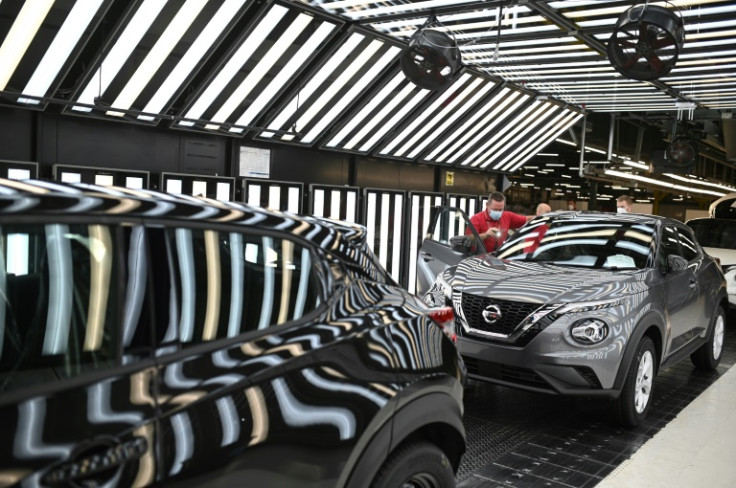
Japanese auto giant Nissan announced Friday it would invest up to GBP2 billion in UK electric car manufacturing, which the government touted as a sign of confidence in the sector.
Nissan said it will produce electric models of two best-selling cars, Juke and Qashqai, at its facility in Sunderland, northeast England, which is its biggest factory in Europe, building on UK net zero plans to switch away from dirty fossil-fuel vehicles.
The carmaker will plough GBP1.12 billion ($1.4 billion) into its UK operations and wider supply chain for research and development and manufacturing of the two new models, it added in a statement.
That will also spark further investment in infrastructure projects and the supply chain, including another electric car battery factory, bringing total investment to as much as GBP2 billion ($2.5 billion).
Nissan's investment will support its UK workforce of 7,000 employees -- and 30,000 jobs in the nation's broader supply chain.
"Exciting, electric vehicles are at the heart of our plans to achieve carbon neutrality," said Nissan President and CEO Makoto Uchida.
"With electric versions of our core European models on the way, we are accelerating towards a new era for Nissan, for industry and for our customers."
Uchida declared in September that there was "no going back" on the group's electrification plans as it aims for 98 percent of European sales to be electric vehicles by 2027.
The news comes as Britain looks to take a leading role in the production of electric cars as companies and governments shift away from high-polluting automobiles.
The UK government confirmed Friday that it has awarded GBP15 million of funding towards a collaborative R&D project for zero-emission vehicles led by Nissan.
"Nissan's investment is a massive vote of confidence in the UK's automotive industry, which already contributes a massive GBP71 billion a year to our economy," said British Prime Minister Rishi Sunak, who will attend a formal announcement at the site later on Friday.
"This venture will no doubt secure Sunderland's future as the UK's Silicon Valley for electric vehicle innovation and manufacturing.
"Making the UK the best place to do business is at the heart of our economic plan."
Finance minister Jeremy Hunt pledged Wednesday in his budget update to invest GBP4.5 billion in strategic sectors including the auto industry.
However, earlier this year Sunak softened policies aimed at reaching net zero carbon emissions by 2050, delaying a ban on the sale of petrol and diesel cars by five years to 2035.
That still means however that the country's largely foreign-owned car manufacturing sector must switch to producing fully-electric vehicles.
Nissan had previously warned that a no-deal Brexit would threaten the Sunderland site, but committed to its future after the government agreed a trade deal.
Yet the nation's car industry has warned that automakers will soon face a damaging 10-percent hike in customs duties on electric cars crossing the Channel.
Britain left the European Union in 2021 after clinching a last-gasp free trade agreement which removed tariffs on cars.
But under the deal, from January 1, 2024, at least 45 percent of the value of car parts must originate from Britain or the European Union to be exempt from customs duties.
That hits electric carmakers because their batteries often originate from China, despite UK efforts to establish production.







